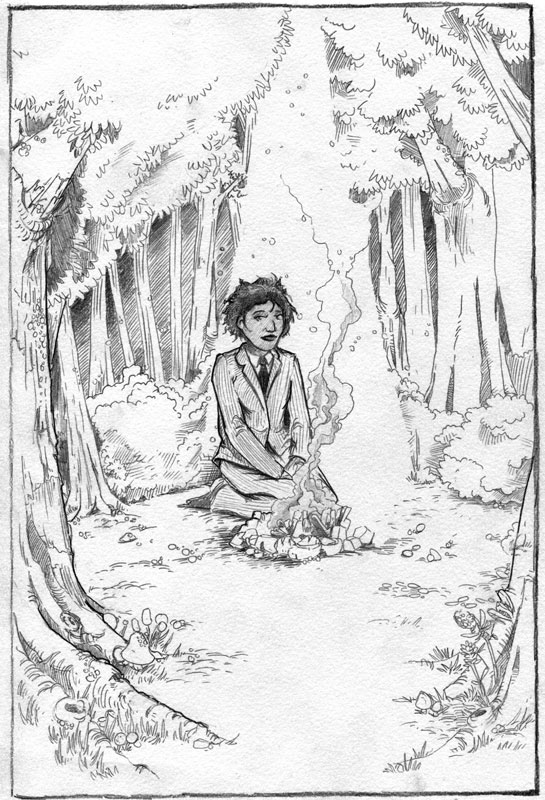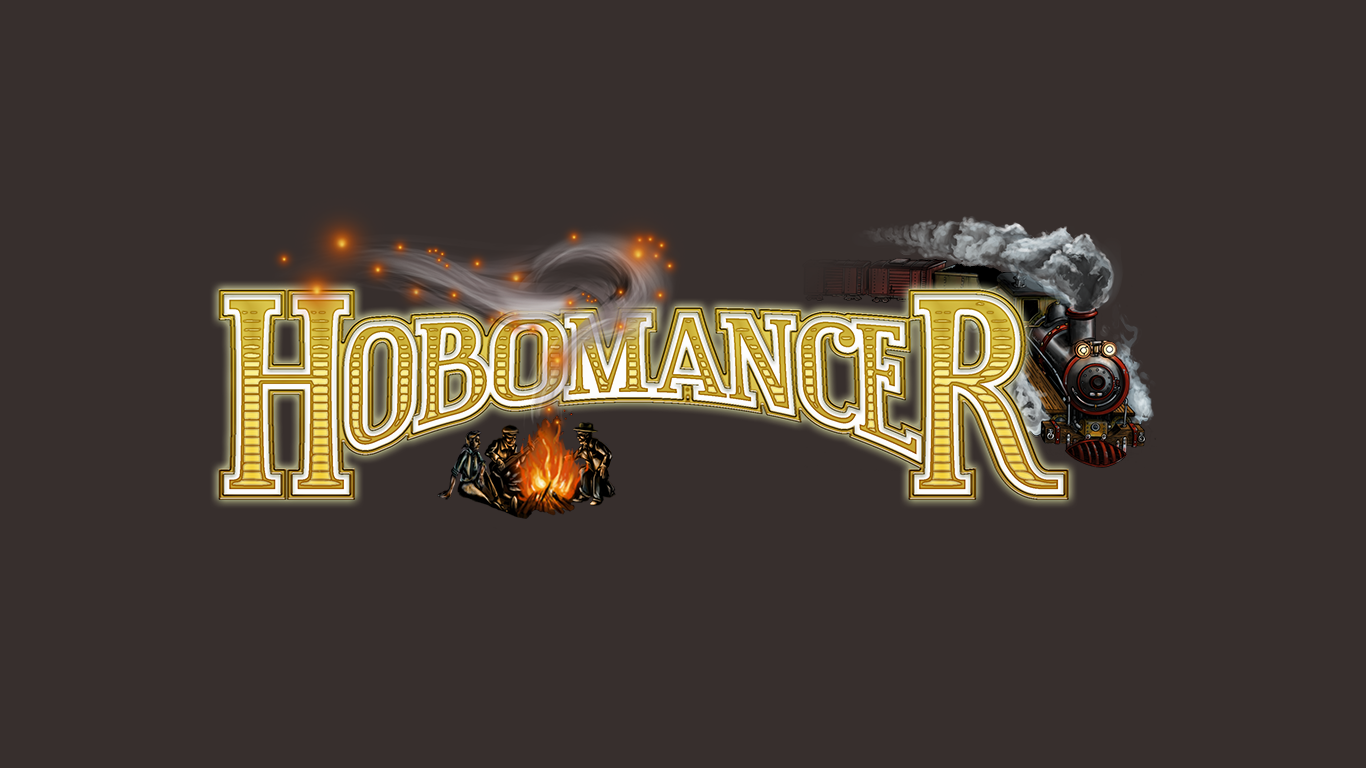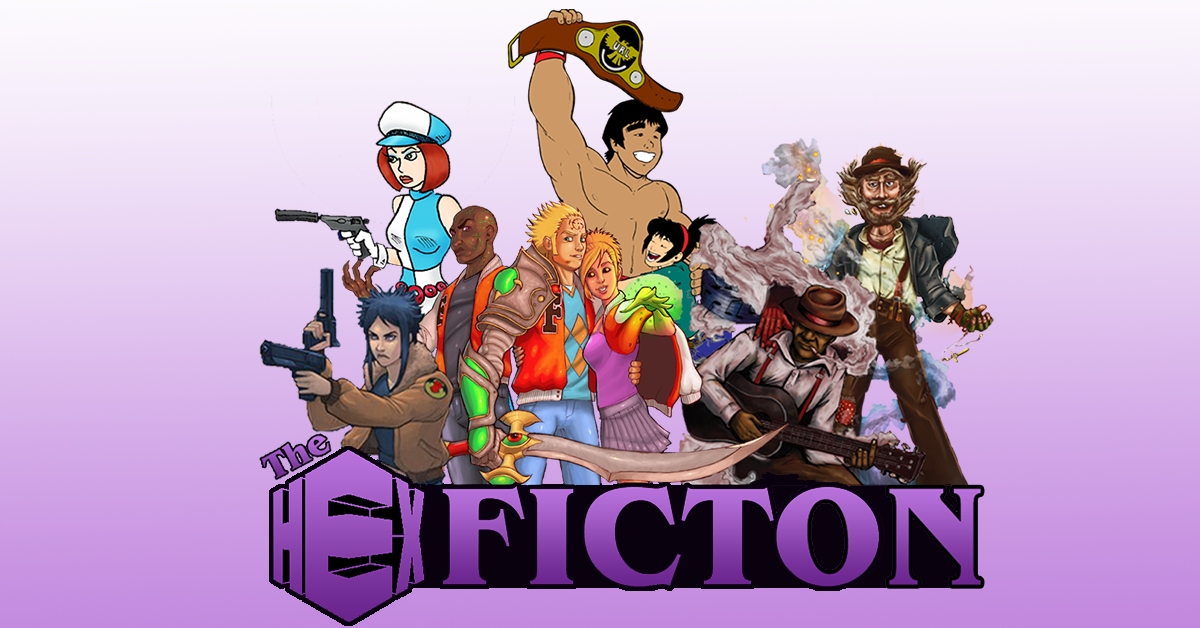We may earn money or products from the companies mentioned in this post.
Conducted by Leighton Connor
This is the continuation of my interview with Carter Newton about his new novel Suicide’s Run: A Tale of the Hobomancers (on sale now!) In the first part, which you can read here, Carter and I talked about how Carter went about translating an RPG setting into a novel and turning character sheets into real characters. In Part Two we talk more about the characters, and the particular challenges Carter faced as a white male trying to write a convincing black female character.
Leighton Connor: One of the things I really enjoy about the book is the way you make the hobomancer characters so mysterious–since the book is from Suicide’s point of view, we only gradually learn about them as he gets to know them better, and we never learn all their secrets. Without getting into too much detail, which of the hobomancer characters was the most fun to write?

Carter Newton: That’s hard! You basically just asked me to pick my favorite child. All of the hobos were fun in different places and for different reasons. Nugget was fun, because there’s some real fun in writing a curmudgeon. Scoreboard has a couple of very subtle jokes that I hope somebody catches and says, “Hey, you know…” I think Montana Handle ended up being the most like how I envisioned in the beginning. His WWPHITM was Christian Kane in Leverage. With a dash of Aragorn.
Even the bad guys are fun to write. Particularly as they start posturing and jockeying for position.
Okay, fine, it’s George Porter. She’s my favorite.
LC: George Porter is an African American female, and you’re a white guy. When you were writing her, were you concerned that she would come across as . . . well, as a white guy’s flawed perspective on being a black woman in the 1930’s?
CN: Concerned? Are you kidding? I was terrified.
There’s a section in the Hobomancer rulebook that says, essentially, it was bad to be a hobo, it was worse to be a female hobo, it was even worse to be a hobo person of color, and to be a hobo woman of color was unspeakable. So in a moment of unbelievable hubris I said, “Okay, the leader of this crew of hobomancers is a woman of color.” And then I started writing, and after about ten pages or so, I realized what I’d done and that I needed to stop and read a lot to avoid some of the really bad traps in fiction.
LC: Like what?
CN: There’s a particular trope in fiction in which a person of color exists to do something magical for the main – usually white – character. Think Bagger Vance or Uncle Remus. And after I’d started re-reading what I’d done with George Porter, I realized that by definition I’d done exactly that. And then I kicked myself for about a week and a half.
And after that I realized that it was important to keep George Porter, but also to make sure she went beyond the trope. I spent a lot of time on explicitly feminist websites reading about modern feminist theory and intersectionality. And then I thought about it a lot. Like about five months a lot. I spent a lot of time with my mouth shut reading about the experiences of women in disenfranchised groups, and letting those stories inform how I approached George Porter. I owe writers and commenters at websites like Jezebel and Shakesville an enormous debt of gratitude.
Basically, what I had to do was to make sure that George Porter had her own story, and that it reflected both the reality and the possibilities of the time, and that it wasn’t about Suicide. There’s a professional interaction very early in the book that sort of sums up this sort of institutional underestimation of the capabilities of people of color. And it occurred to me that kind of day-in and day-out aggression by white people would lead to so much resentment, but if George Porter acts any of that resentment out…well, look at the statistics on lynching in America in the 20th century.
Let’s be clear, it was hard for me to face this history of racism and sexism and responses to them to write George Porter as well as she deserved to be written, but it’s nowhere near as hard as it is for disenfranchised people to actually live it. I hope I’ve represented the experiences of those who educated me in a way that makes them feel heard.
LC: Well, I thought you did a good job, but I’m another white dude, so I’m probably not the best person to ask. You mention that you did a lot of reading for your portrayal of George Porter. One thing that struck me, when I was reading the book, was how much you seemed to know about the 1930’s in general. I know that if I were writing a novel set in that time period I wouldn’t have been able to come up with nearly that level of detail. How much research did you do, and how much did you already know going in?
CN: Approximately one thousand years ago I got a BA in history, but the 1930s in America was neither my region or my time period! I still really enjoy history, and an uncomfortable amount of my pleasure reading seems to be about US history between, say, the end of the Civil War and World War II. You know, the really happy, uplifting parts. The first half of the 20th Century in American history I find really interesting, because it feels a lot like the country trying to figure out how to be a nation and taking these grudging half steps towards being better at fulfilling the promise that all men and women are treated equally before the law and have equal access to the tools to achieve their potentials. Something else we’ve totally got covered now.
The history of those faltering steps is largely a tale told against the backdrop of disaster and tragedy which sort of forces the hands of the powerful. John M. Barry’s book Rising Tide is one of those great books which takes the story of this natural event, the Great Flood of 1927 along the Mississippi River, and breaks down all of the economic impacts of the disaster, and what flood control means for the maturation of the Federal Government’s role in state issues, and the social implications for the people who live through it. I mean, you have this huge African-American diaspora from the Mississippi Delta to the industrial cities of the north, and from that you get things like Otis Spann, the piano blues player – without whom you’d have no Little Richard, and no Rock and Roll, and you have Detroit, which prospers partially because of this sudden influx of labor, and you also get Motown, without which you and I live in a very boring world!
Also Wikipedia. Everybody should give them five bucks, at least once a year. I can’t tell you how many bizarre questions I typed into Google only to discover that, why yes, someone has written an article on Wikipedia about urban planning in Hoovervilles in the industrial North East. Wikipedia is the modern Library of Alexandria. Go give them some money.
And, with that call to action, we draw to a close again. Be sure to check in tomorrow to see Carter and me talk about Good Jungle, the aftermath of disaster, and the real-life plot to overthrow FDR in a fascist coup.



